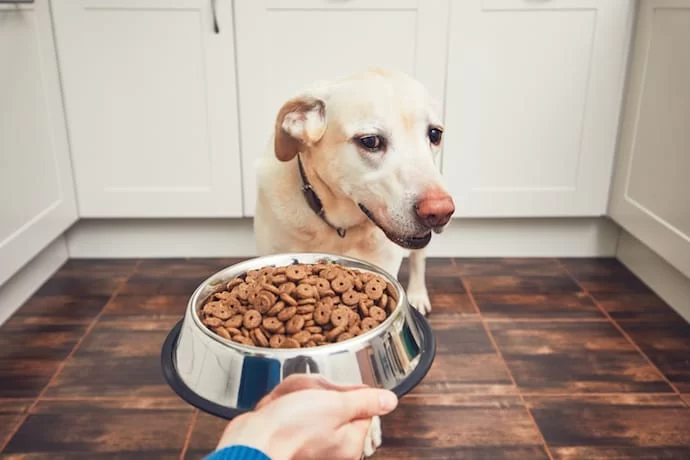How to Treat Dog Gastrointestinal Issues: A Pet Owner's Guide
As a pet owner, there’s nothing quite as distressing as seeing your dog uncomfortable, especially when they’re dealing with gastrointestinal (GI) issues. Over the years, I’ve learned that digestive problems in dogs are quite common and can vary in severity. From mild stomach upset to more serious conditions, understanding how to treat your dog’s gastrointestinal issues is crucial to helping them feel better. If you’ve ever had to deal with a dog with a sensitive stomach or digestive issues, then you know how important it is to recognize the symptoms early on. In this guide, I’ll walk you through my experience with gastrointestinal issues in dogs and share tips on how to treat and manage them effectively.
1. Recognizing the Signs of Gastrointestinal Issues in Dogs
The first step in treating your dog’s GI problems is recognizing when something’s wrong. Dogs can’t exactly tell us what’s going on, so as a pet parent, we need to be vigilant. Common signs of gastrointestinal distress in dogs include vomiting, diarrhea, loss of appetite, bloating, and excessive gas. I remember the first time my dog, Bella, had a stomach upset. She was vomiting and seemed lethargic. At first, I thought it was just something she ate, but when it persisted, I knew I had to take action. If you notice any of these symptoms in your dog, it’s important to assess the situation and determine if it’s something that can be managed at home or if you need to consult a veterinarian.
2. Start with a Fasting Period
One of the first things I was advised to do when my dog had gastrointestinal issues was to fast her for a short period—usually 12 to 24 hours. This helps give their digestive system a break and allows their stomach to settle. It’s important to note that fasting should only be done for a short period, and you should always make sure your dog has access to clean, fresh water during this time. After Bella’s fasting period, she seemed to feel better and had more energy. However, it’s essential to monitor your dog during this time, as prolonged fasting, especially for puppies or older dogs, can be dangerous.
3. Gradually Reintroduce Food
Once your dog has had a short fasting period, you’ll want to start reintroducing food in small amounts. I was advised to give Bella a bland diet that’s easy on the stomach. The classic bland diet consists of boiled chicken (no skin or bones) and plain white rice. This combination is gentle on the digestive system and can help soothe an upset stomach. I slowly introduced this food to Bella in small portions, gradually increasing the amount as her symptoms improved. You can also consider using a commercial gastrointestinal dog food, which is formulated to help with stomach issues and is easy to digest.
4. Monitor for Additional Symptoms
During the treatment process, it’s crucial to keep an eye out for any new or worsening symptoms. I remember when Bella started to show signs of dehydration due to the vomiting and diarrhea. This can be a serious concern, especially if your dog isn’t drinking enough water. If you notice signs of dehydration—such as dry gums, sunken eyes, or a lack of energy—it’s important to seek veterinary care immediately. Dehydration can make gastrointestinal issues worse and lead to more severe complications. Thankfully, after a few days of the bland diet and plenty of water, Bella was back to her normal self.
5. Consider Probiotics for Digestive Health
Probiotics are live bacteria that can help restore the balance of good bacteria in your dog’s gut. I’ve used probiotics with Bella after her gastrointestinal upset, and I’ve noticed a positive change in her digestion. Probiotics can help restore the natural flora in your dog’s digestive system and improve gut health. These are available in various forms, such as powders, capsules, or chewable treats. It’s a great way to support your dog’s digestive health, especially after a bout of stomach problems. However, it’s always a good idea to consult with your vet before introducing probiotics, as some dogs may require specific strains based on their condition.
6. Hydration is Key
One of the most important aspects of treating gastrointestinal issues in dogs is ensuring they stay hydrated. During gastrointestinal distress, dogs can lose a significant amount of water due to vomiting and diarrhea. I made sure that Bella always had access to fresh water, and I encouraged her to drink small amounts frequently. If your dog is refusing to drink water, try offering ice chips or using a syringe (without the needle) to administer small amounts of water directly into their mouth. There are also electrolyte solutions specifically designed for pets, which can help replace lost fluids and minerals.
7. When to Seek Veterinary Care
While many gastrointestinal issues can be treated at home, there are times when you should seek veterinary care. If your dog’s symptoms don’t improve after 48 hours, or if they seem to worsen, it’s time to visit the vet. Additionally, if you notice more severe symptoms like blood in the stool or vomit, excessive lethargy, or if your dog is in pain, don’t hesitate to contact a veterinarian. I learned the hard way that delaying a vet visit can lead to more complications. In Bella’s case, her condition improved with the bland diet and hydration, but other dogs may require additional treatment or medications to address the underlying cause of their gastrointestinal issues.
8. Preventing Future Gastrointestinal Upsets
Once your dog has recovered from gastrointestinal issues, it’s important to take steps to prevent future occurrences. I started paying closer attention to Bella’s diet and made sure she was eating high-quality, easily digestible food. I also learned to avoid giving her table scraps, which can upset her stomach. Regular exercise also helps improve digestion and keeps her gastrointestinal system functioning properly. Additionally, I make sure that Bella doesn’t eat anything she shouldn’t, like plants or garbage, which are common culprits of stomach issues in dogs. Preventing gastrointestinal issues is all about maintaining a balanced diet and lifestyle, which ensures your dog’s digestive system stays healthy.
If your dog continues to have frequent gastrointestinal issues, it may be necessary to consult your vet for further investigation. Chronic gastrointestinal problems can sometimes be a sign of an underlying condition, such as food allergies, infections, or even more serious diseases.
By being proactive and taking steps to treat gastrointestinal issues early on, you can help your dog feel better and keep them happy and healthy. If you ever find yourself in doubt, don't hesitate to visit Hidden Brook Veterinary for professional advice and care tailored to your pet’s specific needs.












